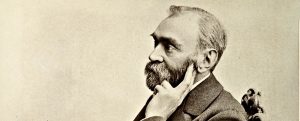People want to believe that in America there are opportunities for everyone to succeed and that one's background does not play a major role. Naive…Cash is king.
The background to the gigantic inheritance was that King Charles II of England owed a debt to Admiral William Penn of £16,000 which the son of the same name William Penn inherited. How this debt arose can probably be researched a lot because it was a turbulent period. The King's father Charles I was executed during the English Civil War and Oliver Cromwell was dictator until his death in 1658 so there was plenty of reason to be friends with an admiral who commanded a fleet. There may also have been biological reasons for the inheritance - apparently Charles II recognized at least 12 children born out of wedlock.
When Penn demanded the debt from King Charles, he received as payment an area of forty thousand square miles in America. In the petition to the king, dated June 1680, Penn requested a gigantic area consisting of all the territory west of the Delaware River and the northern boundary on the north "as far as plantable that was inhabited by Indians ("as far as plantable, which is altogether Indian.” )
The bequest was the largest contribution ever made to an individual in America. The charter was granted the following March. Penn chose the name New Wales for his province but the king called it Pennsylvania in memory of the dead admiral.
Once that was done, Penn was able to offer cheap land to the emigrants (Quakers). The price tag for the land was 40 shillings for 100 acres and they could buy "shares" for 5,000 acres which cost 100 pounds. On August 24, 1682, the Duke of York, who was the brother of Charles II, wrote and gave the state of Delaware to William Penn. But the Duke of York was definitely no pauper – he had previously been given New York by his brother the King.
The lesson that can be learned is that if you want to make money, you must therefore take a collective asset and sell it on to others. It doesn't matter if you don't actually own the utility. The trick is just that you have to be able to legitimize that you have right to sell the asset.
I think about it for a while and pick up the book "New Sweden" - the dream of an empire. The book depicts the colony of New Sweden which was located in Delaware a state that is next to Pennsylvania and it was a colony that only existed for 17 years from 1638.

Picture: Per Lindeström "Geographia Americae". In the fall of 1653, the Swedish military engineer Per Lindeström was in the Swedish colony New Sweden (which was located in Wilmington, Delaware).
It is interesting that the Swedes failed to profit from the new country in the west and the money flows probably went to England instead. Why did the Swedes fail? It would have been smarter to pay colonizers to settle in the new country instead of sending missionary priests. At the end of the 17th century, we had a strong military force that had been able to focus on expansion and cooperation instead of war against arch-enemies Denmark and Russia.




